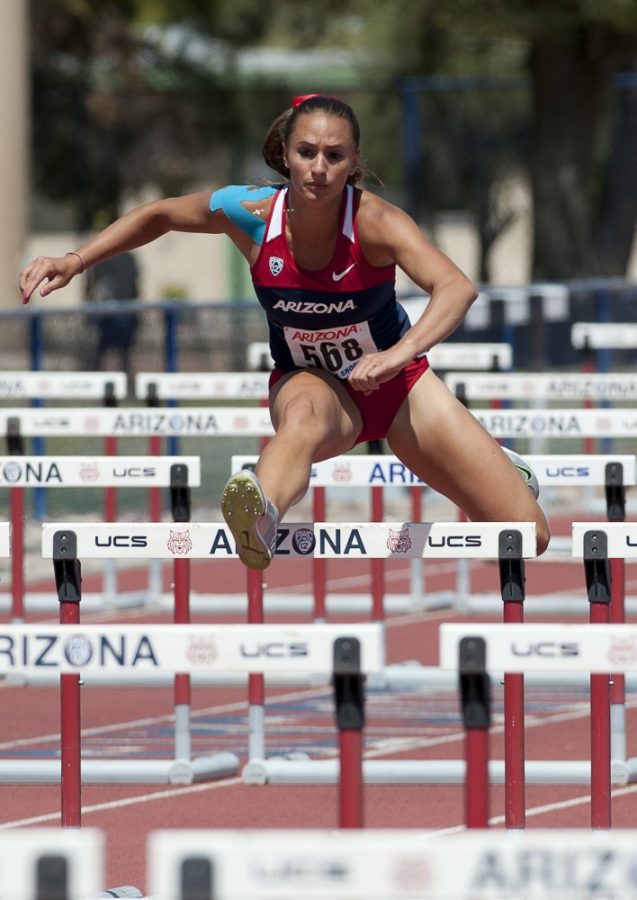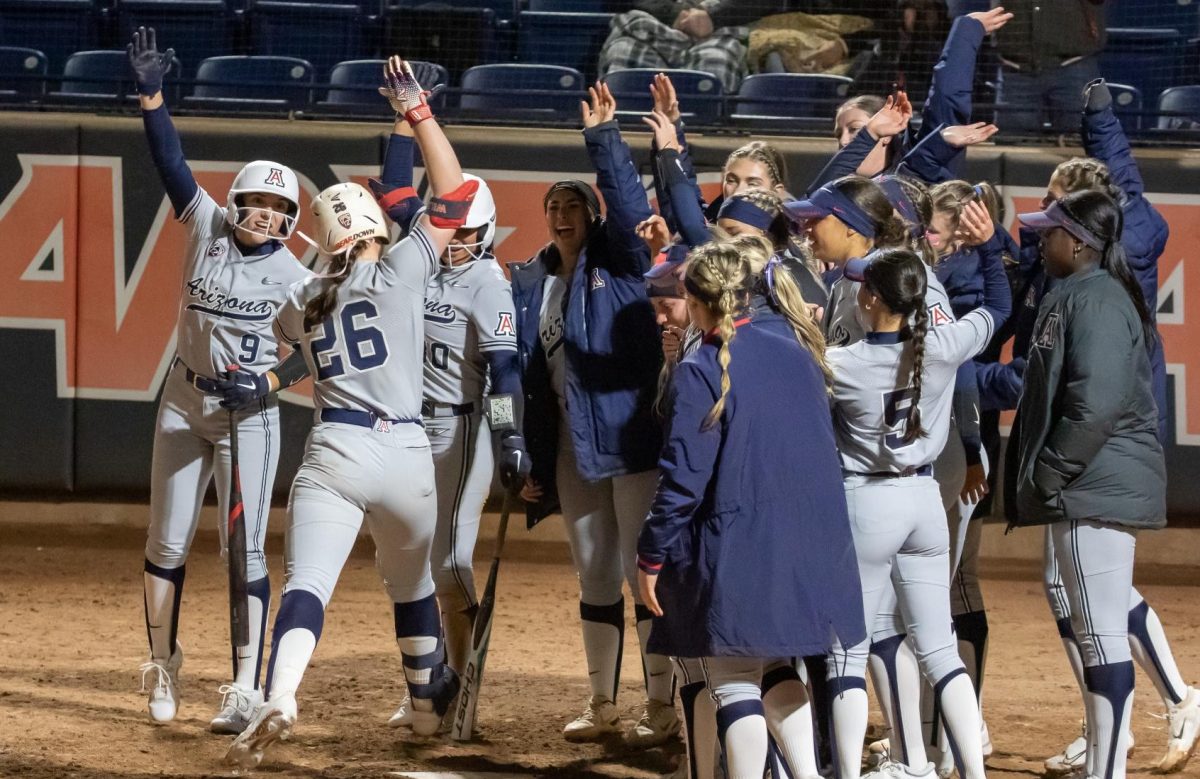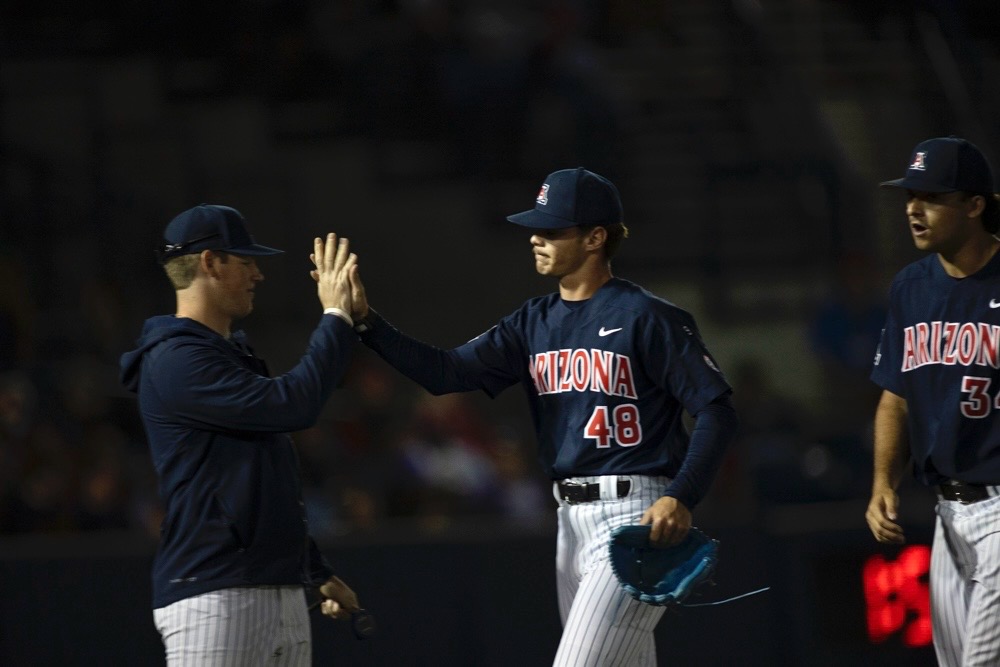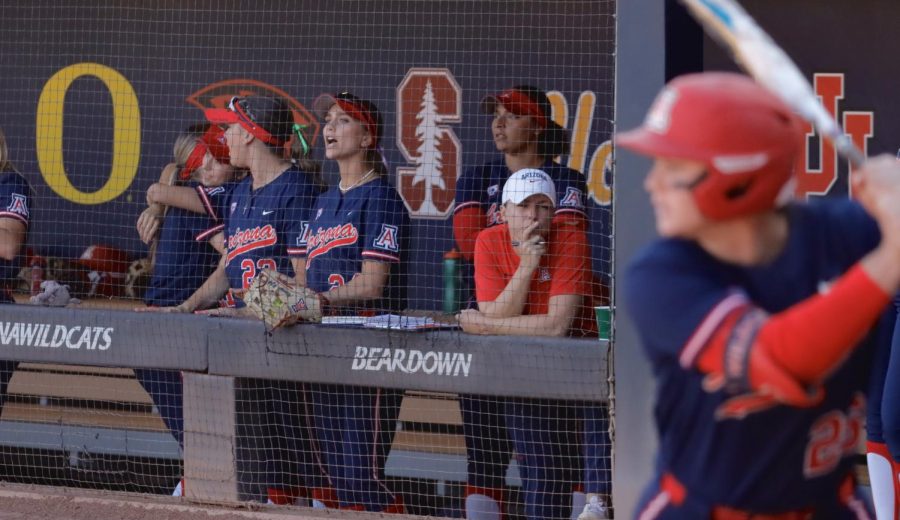Track athletes usually focus on one type of event: Throwers compete in the shot put, the javelin, the discus. Jumpers compete in the high jump or the long jump. Sprinters compete in short distances and distance runners compete in long distances.
But junior Amber Passalaqua focuses on not one, but all of these events — she’s a heptathlete.
The heptathlon competition takes place over a series of two days. On day one, the heptathletes compete in 100-meter hurdles, high jump, shotput and the 200-meter dash. On the second day, they finish the competition with long jump, javelin and the 800-meter run.
Heptathletes receive points for each event they compete in. Different marks and heights are worth a certain number of points depending on the difficulty of the event. For example, the throwing events are considered easier. Therefore, athletes receive fewer points for a better mark.
Passalaqua wasn’t always a heptathlete, though. During high school, in Pine Bush, N.Y., Passalaqua was a hurdler and a high jumper. She also competed in the 4×400 relay. After all of the girls in her relay graduated, Passalaqua said, her coach asked her to participate in the pentathlon, which is a series of five events.
“Where I’m from, you have pentathlons in high school, whereas in a lot of states you don’t get that opportunity,” Passalaqua said. “So I tried it and ended up being good. I won state my junior and senior year. Then I just started to get recruited as a multi for college. It kind of fell into place that way.”
Passalaqua was recruited to Syracuse University, but after her coach left, she found a new home at the UA, where she is currently the only heptathlete.
Because Passalaqua is the only pentathlete, she trains with men’s decathletes. Her training is more rigorous than the other track athletes, because as most athletes focus on one or two events, Passalaqua focuses on seven. As a result, Passalaqua said she spends double the time training than the other athletes.
“On a regular day for me, I’ll warm up,” Passalaqua said. “I’ll do a throwing event, so I’ll do shot put. I’ll do long jump. And then I’ll do hurdles. And then maybe I’ll do either a sprinting endurance workout or mid distance workout after that. So by the time all the technical training is done, then I have to re-gather myself and do a full sprinting workout and then go lift.”
Because of this grueling physical strain, Passalaqua said that multi-event athletes tend to get hurt often and spend a lot of time in the training room.
“If you’re not prepared going into a heptathlon, that’s a lot on your body, so you won’t make it through,” Passalaqua said. “Usually when we go to meets, three or four girls will pull out halfway through the heptathlon because they get injured or they do don’t do well in an event and they don’t want to finish.”
The biggest challenge about being a heptathlete, Passalaqua said, is the mental aspect. Because every event in the heptathlon contributes to the final score, a bad performance in one competition can’t affect the next competition.
“You have to refocus every single event,” Passalaqua said. “You can’t take a bad event and take it to the next one. You have to re-gather yourself and refocus.”









